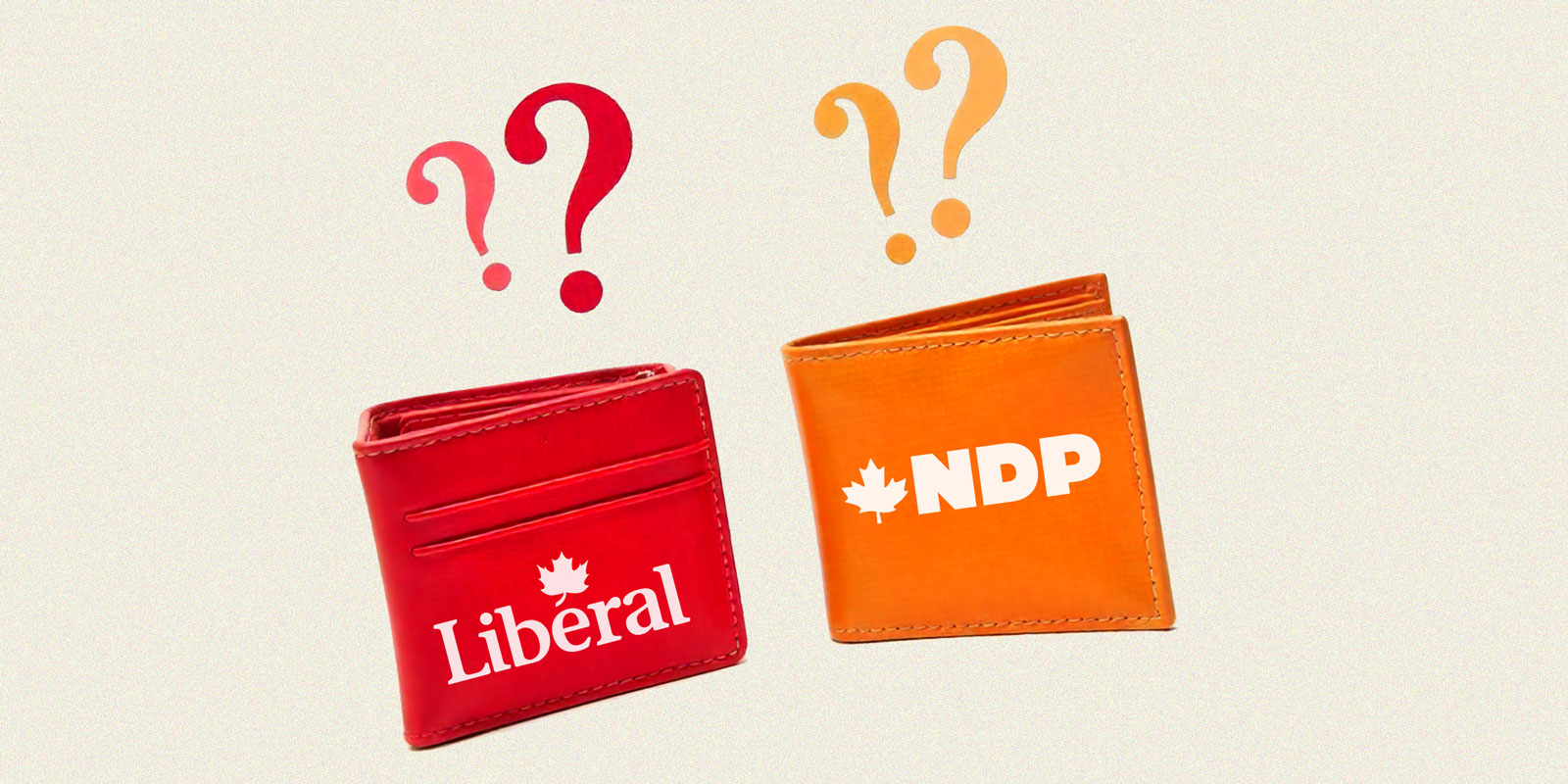Late report on 2024 finances ‘so outdated it’s useless,’ says Democracy Watch as most major parties ask for more time

With only the Conservative Party disclosing last year’s financial statements on time and the remaining parties having received extensions of up to three months, the delayed reporting renders important financial information “outdated to the point of uselessness,” says Democracy Watch’s Duff Conacher, who is calling for stricter timelines.
“The federal parties are big public organizations, and they should face the same quarterly disclosure requirements as publicly traded companies,” Conacher told The Hill Times. “Only disclosing donations every quarter is only telling half the story, and donors should be able to know whether their party is in a healthy position or if it’s just going to financing debt.”
Of the five main federal parties, only the Conservatives submitted their complete 2024 financial statements to Elections Canada by the June 30 deadline, reporting a total revenue of just over $48.5-million, including $42.2-million in monetary contributions and more than $5-million in membership dues.
However, the Conservatives also reported just shy of $50-million in spending last year, including more than $8-million in fundraising expenses, $9.3-million in salaries and benefits, and $16.5-million on advertising, with nearly half spent on television ads—$7.8-million—followed by $7.1-million on digital and “other” advertising, and more than $1.5-million on radio ads.
Despite a deficit of over $1.47-million between revenue and expenses, the party ended the year with just shy of $16-million “cash on hand,” and just over $9.3-million in net assets.
This deficit follows two consecutive years of significant net revenue, with the party generating $3.9-million in net revenue in 2023 and $11.5-million in 2022. It’s also far lower than the Conservatives’ roughly $7-million election-year deficits in 2021 and 2019.
According to Elections Canada’s database, only four other parties submitted financial disclosures on time: the People’s Party of Canada (PPC), the Centrist Party, the Christian Heritage Party, and the Marxist-Leninist Party.
In 2024, the PPC reported $1.5-million in total revenue, including $1.15-million in contributions and $145,975 in memberships, against more than $1.6-million in expenses, resulting in a deficit of $185,530. However, the PPC also ended the year in a positive financial position, with $482,651 in cash and $1.78-million in net assets.

Of the remaining federal parties that have yet to submit their returns, nine were provided with extensions ranging from 30 to 90 days, according to Elections Canada spokesperson Matthew McKenna. The Green Party was given until Aug. 14, the Liberals and NDP until Aug. 29, and the Bloc Québécois until Sept. 29. The remainder were given a 30-day extension, he said.
Should any of the parties fail to meet those extended deadlines, McKenna noted that they would be issued a notice of non-compliance with the Elections Canada Act and would be given another 30 days to either file their completed financial return or submit their reasoning for not doing so. In the latter case, Chief Electoral Officer Stéphane Perrault would review that party’s explanation and consider granting a further extension.
If neither their disclosure nor extension request is submitted on time, or if their request is denied, that party will be deregistered and referred to Elections Commissioner Caroline Simard, who will review the case and decide whether enforcement measures, including monetary penalties, are required.
In response to The Hill Times‘ request for comment, Liberal Party spokesperson Matteo Rossi confirmed the party’s financial disclosure would be submitted by the new deadline, noting it was “not unusual for political parties to request filing extensions.”
Rossi also noted that while its 2024 financials have yet to be submitted, the party is currently in “one of the strongest positions for fundraising and grassroots organizing” ever.
“Grassroots Liberals powered our party to its best-ever first and second quarters for fundraising this year, with more donors chipping in [the first quarter of 2025] than in any single year in our history,” Rossi said.
In the first quarter of 2025, the Liberal Party was buoyed by a leadership race and brought in more than $13.6-million in donations from 156,489 individual contributions, outpacing their total contributions for all of 2024 when the party raised just shy of $15.2-million from 118,238 contributors. The Liberals also surpassed the Conservatives’ total first-quarter contributors of 148,676. However, the Tories more than doubled the Grits’ fundraising total for that period, bringing in just shy of $28.4-million, amounting to nearly three-quarters of the Conservatives’ 2024 fundraising total of roughly $42-million from 211,255 total contributions.

Both the NDP and Greens cited the demands of an election year to explain their request for an extension, but confirmed that they would also submit by the new deadline.
“Recognizing the demands of a campaign year, we proactively requested more time to ensure the report receives the attention it deserves,” wrote NDP national director Lucy Watson.
Laurie MacMillan, Green Party director of communications, noted that as a “small party with a small staff … we simply needed a bit more time to finalize the required materials.”
The Bloc Québécois did not respond to The Hill Times’ request for comment by publication deadline.
While the quarterly and annual financial disclosures are of value to party supporters and potential voters, without more regular disclosures of party expenses and debt, “Canadians are only getting half the story,” Conacher said. And once they get that whole picture, the information is “so outdated it’s useless” since nearly all of the major parties won’t have submitted their information until nearly the end of the third quarter of 2025.
“It’s ridiculous that the public isn’t able to track a party’s expenses or the status of its assets and liabilities in real time,” Conacher said, noting that parties in both poor financial situations and those attempting to present a stronger one have vested interests in delaying disclosure.
“We get stories four times a year about how strong the Conservatives are at fundraising, but only once do we get a glimpse at whether they’re spending more than they’re raising,” Conacher explained.
On the other hand, Conacher said that there are “rumours of the NDP’s financial demise,” pointing to a recent analysis by Conservative strategist Fred DeLorey in The Hub regarding the NDP’s loss of recognized party status, and more importantly the election expense rebate from Elections Canada, as fewer than 50 of 343 NDP candidates reached the 10-per-cent vote threshold needed to qualify.
Without those rebates, DeLorey predicts “financial ruin” for the NDP as it will struggle to repay its election loan without them. According to several party insiders he has spoken to, DeLorey reports that the party borrowed close to the maximum of its $35.8-million election spending limit.
Under the Canada Elections Act, registered parties are required to repay election loans within three years. After this period, any unpaid balance can be deemed a political donation, which banks are prohibited from providing and are capped at $1,775 per individual.
In a June 25 interview on the CBC’s Power and Politics, NDP president Mary Shortall said that the party spent less money than was budgeted for. While the party has debt to repay after every election, she was “very optimistic” about the party’s path forward.
“We’re not dead in the water by any stretch of the imagination,” Shortall told host J.P. Tasker, but noted she did not have an exact amount for how much the party owes.
While the NDP is late in disclosing last year’s financial statements, it has already submitted its second-quarter fundraising totals—the period accounting for the 45th general election—to Elections Canada ahead of the July 30 deadline.
The New Democrats raised just over $1.9-million from 38,149 total contributions between April 1 and June 30, a slight increase from the $1.8-million raised from 37,538 total contributions during the first three months of 2025, for a total of $3.76-million for the first half of 2025. According to The Hill Times’ tracking of quarterly fundraising, the NDP raised just over $6.2-million in 2024 from 211,255 contributions.
Speaking with The Hill Times, DeLorey said the response to his analysis from NDP supporters was split between “very concerned” and those who dismissed him because he “just didn’t know the numbers,” noting the irony that the party isn’t required to disclose them until next year.

Additionally, the NDP’s 2024 disclosure would have also confirmed whether the party had fully paid off its $22-million 2021 election loan. According to the NDP’s 2023 financial disclosure, the party reported a balance of $716,667 in loans at the end of the year, down from $3.58-million to close out 2022.
However, while DeLorey said he is skeptical about whether the NDP actually ran a fully funded campaign, and thus may not have spent the full amount it borrowed, if he and the rest of Canada have to wait nearly a year to find out, there should at least be more strict requirements for parties to disclose on time. Additionally, he said “repeat delinquency” should be a more significant factor when Elections Canada decides whether to provide an extension.
“This should be easy to do,” DeLorey said, noting that if riding association volunteers can submit their disclosures on time, political parties with millions of dollars to hire accountants should be able to as well.
“They all eventually do it, so it’s not that they’re trying to hide anything, it’s just a matter of the parties putting the resources into doing what should be a basic job,” DeLorey said.
The federal parties are required to disclose their third-quarter financial reports by Oct. 30, and their financial returns for the 45th general election by Dec. 29, according to Elections Canada’s political financing calendar.
sbenson@hilltimes.com
The Hill Times






 LICENSING
LICENSING PODCAST
PODCAST ALERTS
ALERTS













